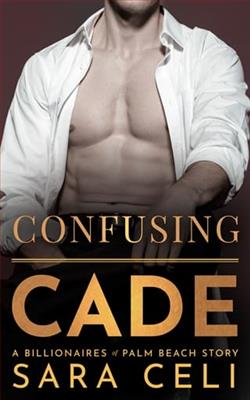Page 41 of Daddy Knows Best
"Hi," he said quietly.
"Hi," I whispered back.
His boot pressed harder, just for a moment. A reminder. A promise. A connection that had nothing to do with the other diners or the gorgeous setting or the perfect dessert melting between us.
"Eat your honey," he said, voice pitched low enough that only I could hear. "My little bee needs sweetness."
The pet name in public, quiet as it was, sent heat flooding through me. I took a bite of semifreddo to cover my reaction, but from his satisfied expression, he knew exactly what he'd done.
The rest of dinner passed in a blur of charged touches—his fingers brushing mine over the check, his palm warm on my lower back as we left. Normal couple things, according to our agreement. But nothing about us felt normal.
Theharborboardwalkstretchedout before us, city lights fracturing across black water like scattered coins. Salt air mixed with remnants of rain, and somewhere a boat horn mourned the passing day. Other couples dotted the path—anonymous shadows holding hands, stealing kisses, living their own stories.
Nate's fingers intertwined with mine as we walked, and the simple contact felt monumental. No intake forms between us. No professional distance mandating careful space. Just his palmwarm against mine, his thumb finding the soft spot between my knuckles.
We walked in comfortable silence for a while, but questions built in my chest like carbonation. The easy dinner conversation had awakened harder truths, things that needed air before they festered.
"Can I ask you something?" I finally said as we passed a cluster of teenagers sharing vapes and secrets.
"Always."
"Are you worried I'll be too much?" The words tumbled out in a rush. "Like, real-world Emily versus therapy Emily? Without the structure and the rules and the professional framework holding me together?"
He stopped walking, turning to face me fully. Behind him, the water reflected navigation lights in endless ripples.
"Emily." Just my name, but weighted with feeling. "Do you know what I thought during our first session?"
I shook my head, caught by the intensity in his eyes.
"I thought: this woman is going to destroy me." His free hand came up to cup my cheek. "Not professionally, though that was certainly a risk. But personally. The way you walked in already apologizing, your honesty about the shopping and the debt and the fear—I knew I was in trouble."
"That doesn't answer—"
"I'm not worried you'll be too much," he interrupted gently. "I'm worried I've already shown you I can't maintain appropriate boundaries where you're concerned. That every time you needed correction, needed guidance, needed to be held accountable—it was never clinical for me. Never just about behavioral modification."
My breath caught. "What was it about?"
"Protection." The word came out rough. "This desperate need to keep you safe from yourself. To be the structure you couldn'tbuild alone. Do you know how many nights I reviewed your files, looking for better interventions? How many times I had to talk myself out of calling to check on you between sessions?"
"But that's your job—"
"No." His thumb stroked my cheek. "My job was to maintain professional distance. Provide tools. Let you succeed or fail on your own. I couldn't do it. Every time you spiraled, I took it personally. Every victory felt like mine too. That's not therapeutic best practice, Emily. That's something else entirely."
We started walking again, but slower now, bodies angled toward each other like satellites finding orbit. The boardwalk curved ahead, leading to the old lighthouse sculpture—bronze and verdigris, a monument to ships that never came home.
"I used to think wanting things was the problem," I said quietly. "Like if I could just stop wanting, I'd be fixed. But then you showed up with your rules and your careful hands and your voice that made me feel safe, and I wanted worse than ever. Wanted you. Wanted to be good for you. Wanted to earn every 'good girl' like they were gold stars for my soul."
"Emily—"
"I'm scared," I admitted, the words scraping my throat. "Scared that without the therapy structure, you'll see that I'm just a mess who can't control her impulses. Who climbs into laps and buys things she can't afford and calls her therapist Daddy because she doesn't know how to be normal about anything."
We'd reached the lighthouse sculpture, its bronze surface worn smooth by decades of hands seeking wishes. The artist had captured the moment of illumination—light bursting from the tower to guide lost souls home.
Nate turned me to face him, both hands framing my face now. Behind him, the city sparkled like a promise.
"You're not a mess," he said firmly. "You're human. Complex and impulsive and brave enough to ask for help. Do you knowhow rare that is? How many people suffer in silence rather than admit they need structure?"
"But—"















